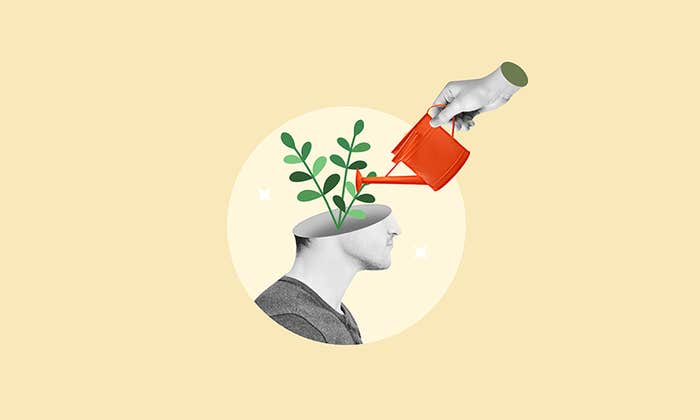Social media is exhausting. The sheer volume of information about humanity contained in just a few minutes of scrolling is almost too much to contemplate: Wrenching accounts of global violence mix with photos from your third cousin’s country wedding and surprising tales of human-animal friendship. Then there’s the FOMO of flipping through a buddy’s vacation pictures to Bhutan or Berlin while you’re on the couch in sweatpants. Even cute cat videos overwhelm after a while.
And yet, it’s hard to look away. Almost 60 percent of American adults think they spend too much time on their phones, and social media represents one of the biggest time sucks: On average adults spend more than 2 and a half hours on social media sites like TikTok, Facebook, and Instagram every day, while teenagers clock nearly double that. All that scrolling, as we know, can leave people feeling sad and anxious, sleeping badly, doing poorly in school, getting little done at work, and neglecting friends and family.
So is attachment to social media an addiction? Many psychologists and public health figures think so, based on criteria used to diagnose other forms of addiction, such as internet gaming addiction. But no formal diagnosis exists, and studies of the effects of digital “detox”—disconnecting from the offending activity or substance for a defined period of time, a standard tool in addiction studies—have been mixed. Now a small but thoughtful new study in PLOS One calls into question whether addiction is the right term for heavy social media use, and suggests digital detox, at least over the short term, may not have much impact on mental health at all.
“I think ‘addiction’ is the wrong word to use,” says Durham University psychologist Michael Wadsley, co-author of the study. “Social media can certainly be problematic and people can use it in harmful ways, but I think we should be careful not to over-pathologize behavior as an addiction.”
For their experiment, Wadsley and his colleague Niklas Ihssen wanted to address gaps in previous digital detox studies: an over-reliance on self-report and few measures of the extent of problematic social media use among study participants. They recruited 55 students from Durham University, aged 18 to 25, with varying scores on the social media disorder scale. (None of the students had sought clinical help for their social media use.) The researchers then directed the participants to take one week off social networking sites, and measured withdrawal symptoms, craving, and mood over a 15-day period.
We should be careful not to over-pathologize.
They relied not just on self-assessments but also tracked the students’ craving through a number of behavioral and physiological tests. For example, they measured reactions to different visual cues: social media icons versus control stimuli such as iphone maps, weather, and settings app icons. They also measured how much the students distorted time, which is associated with stress and mood, as well as how much effort they were willing to make to gain exposure to social media sites.
Wadsley and Ihssen found no evidence of the kinds of withdrawal-like effects people typically experience when they suddenly discontinue use of an addictive substance or activity. The “detox” didn’t have positive effects on participants’ well-being, either. Overall, the social media pause didn’t yield much change in mood or motivation at all. They suspect that’s because reducing social media use may remove not just experiences that trigger negative emotions—such as FOMO—but also those that elicit positive emotions, like social approval.
If social media use were an addiction on par with gaming addiction or alcoholism, “after a week of absence you’d expect some substantial changes in mood, and especially in motivation,” says Wadsley. Excessive use of social media may be better defined as a habit, he says, one that can certainly become maladaptive. “I think what our study shows is that most people still maintain some degree of control over their social media use and can reduce their use quite substantially without having any severe impact on mood or cravings.”
The students did report spending a lot more time playing video games and shopping online during the social media detox period, though. So, overall, their screen time didn’t drop that much. Maybe it’s time to put that phone down after all? ![]()
Lead image: Paper Trident / Shutterstock

























